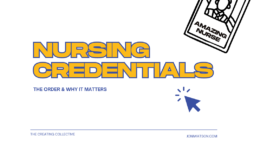Betty Ferrell, PhD, RN, FAAN, presented the Mara Mogensen Flaherty lecture at the 36th Annual Oncology Nursing Society Congress in Boston. Dr. Ferrell is a pioneer in palliative care, end-of-life care, and pain management nursing research, and I teared-up hearing her discuss “The Final Journey,” an End-of-Life Nursing Education Consortium (ELNEC) initiative to improve palliative care and honor veterans dying within the VA Healthcare System.
While we remember this Memorial Day those men and women who fought valiantly and died for our country, we should also remember that more than 54,000 American veterans – mostly from WWII and Korea – die each month, a large portion of them within the VA Healthcare System.
Dr. Ferrell discussed the major changes within palliative care and, mostly, end-of-life care within the institutions that care for our service men and women. Much of what she mentioned can be extrapolated to other healthcare systems, as well. For example, previously when a veteran died, nurses would conduct the post-mortem care, transfer the deceased to a stretcher, cover the body with a cloth, wheel the stretcher through the back hallways and elevators as quickly as possible, and pretend there was not a dead person under the cloth if others passed by during the quick trip from the floor to the morgue. However, “The Final Journey” now honors veterans who die within the system. Whenever a veteran dies, an announcement is made throughout the facility.
Attention please. We honor John B. Smith, Sergeant First Class, United States Army, who served our country during two tours of Operation Desert Storm. You may pay your respects to his family, located in room 224.
Then, after post-mortem care, the veteran is placed on a stretcher and covered with an American flag. The journey from the unit to the morgue is a planned and sacred one as people stop in the hallway, honoring the fallen hero.
What honor. What care! Thank you to all the men and women who have served and continue to serve our country both at home and abroad, and thank you to the nurses serving our country as well as the nurses who care for those who serve.






